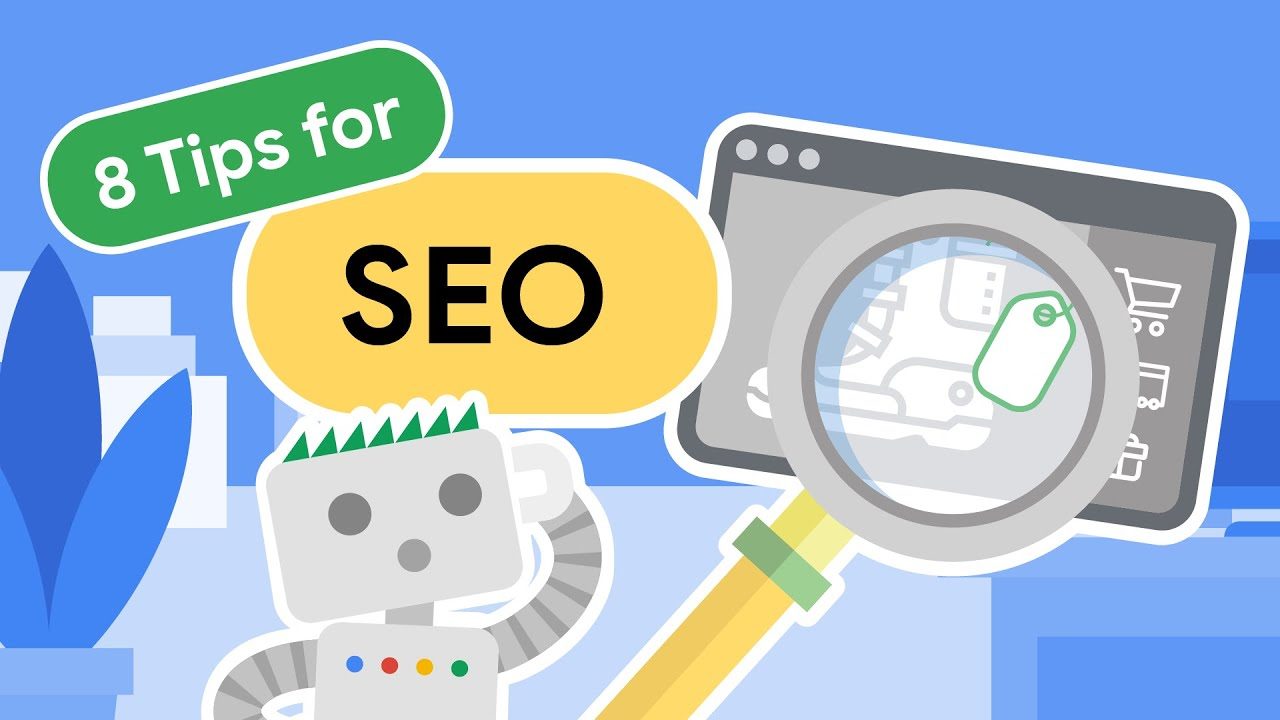8 tips for seo-optimizing your ecommerce site by google developer advocate, Alan Kent

Search engine optimization (SEO) is crucial for any ecommerce business looking to drive more traffic, improve visibility, and increase sales. In this article, we’ll explore eight tips for optimizing your ecommerce site for SEO, as recommended by Google Developer Advocate, Alan Kent.
Introduction
Search engines are the primary source of traffic for ecommerce sites. Therefore, it’s essential to optimize your ecommerce site for search engines to increase traffic, visibility, and sales. In this article, we’ll explore eight tips for optimizing your ecommerce site for SEO, as recommended by Google Developer Advocate, Alan Kent.
Tip #1: Conduct Keyword Research
Keyword research is the foundation of any successful SEO strategy. Conducting keyword research helps you identify the phrases and words your target audience uses to search for products and services you offer. Once you’ve identified the keywords, you can use them to optimize your site’s content.
Tip #2: Optimize Your Site's Architecture
Your site’s architecture plays a crucial role in determining how easily search engines can crawl your site’s pages. Make sure your site’s architecture is easy to navigate and that each page is accessible within a few clicks. Optimize your site’s URL structure, use breadcrumb navigation, and ensure that your site’s internal linking structure is logical and easy to navigate.
Tip #3: Focus on Site Speed
Site speed is a critical ranking factor for search engines. Slow-loading sites can negatively impact user experience and lead to high bounce rates. Optimize your site’s images, compress your code, and leverage caching to improve your site’s loading speed.
Tip #4: Use Unique and Descriptive Product Titles
Your product titles play a crucial role in your site’s SEO. Ensure your product titles are unique, descriptive, and include relevant keywords. Avoid using vague titles like “Product A” or “Item B” and instead use descriptive titles like “Blue Men’s Nike Running Shoes.”
Tip #5: Optimize Your Product Descriptions
Optimize your product descriptions for SEO by including relevant keywords, product features, and benefits. Use bullet points to make it easier for users to read and scan the content. Avoid using duplicate content or copy-pasting manufacturer descriptions, as this can negatively impact your site’s search engine rankings.
Tip #6: Leverage User-Generated Content
User-generated content (UGC) such as customer reviews, ratings, and testimonials can improve your site’s SEO. UGC adds fresh and unique content to your site, which search engines favor. Encourage your customers to leave reviews and ratings and make it easy for them to do so.
Tip #7: Optimize for Mobile
Mobile optimization is crucial for ecommerce sites as mobile devices account for over half of all internet traffic. Optimize your site for mobile devices by using responsive design, ensuring that your site’s pages load quickly on mobile devices, and using mobile-friendly navigation.
Tip #8: Utilize Rich Snippets and Schema Markup
Rich snippets and schema markup provide additional information about your products, such as ratings, price, and availability. Use schema markup to make it easier for search engines to understand your site’s content and display rich snippets in search engine results pages (SERPs). This can improve your site’s visibility, click-through rates, and ultimately drive more traffic and sales.
Conclusion
In summary, optimizing your ecommerce site for SEO is crucial for driving more traffic, improving visibility, and increasing sales. By following these eight tips recommended by Google Developer Advocate, Alan Kent, you can optimize your site for search engines and improve your site’s overall performance.
FAQs
- Why is SEO important for ecommerce sites? SEO is crucial for ecommerce sites as it helps to drive more traffic, improve visibility, and increase sales.
- What is keyword research? Keyword research is the process of identifying the phrases and words your target audience uses to search for products and services you offer.
- How can I optimize my site’s architecture? You can optimize your site’s architecture by ensuring that your site’s pages are easy to navigate, your URL structure is logical, and your internal linking structure is easy to navigate.
- What is user-generated content? User-generated content (UGC) is content created by customers, such as reviews, ratings, and testimonials.
- What are rich snippets and schema markup? Rich snippets and schema markup provide additional information about your products, such as ratings, price, and availability, which can be displayed in search engine results pages (SERPs).
Recommended Posts

Hacksaw Gaming & Spelet.lv Elevate Online Gaming
July 5, 2024

Malta’s Economic Strategy for Business
July 5, 2024

REEVO and Nemesis Elevate iGaming
July 5, 2024



